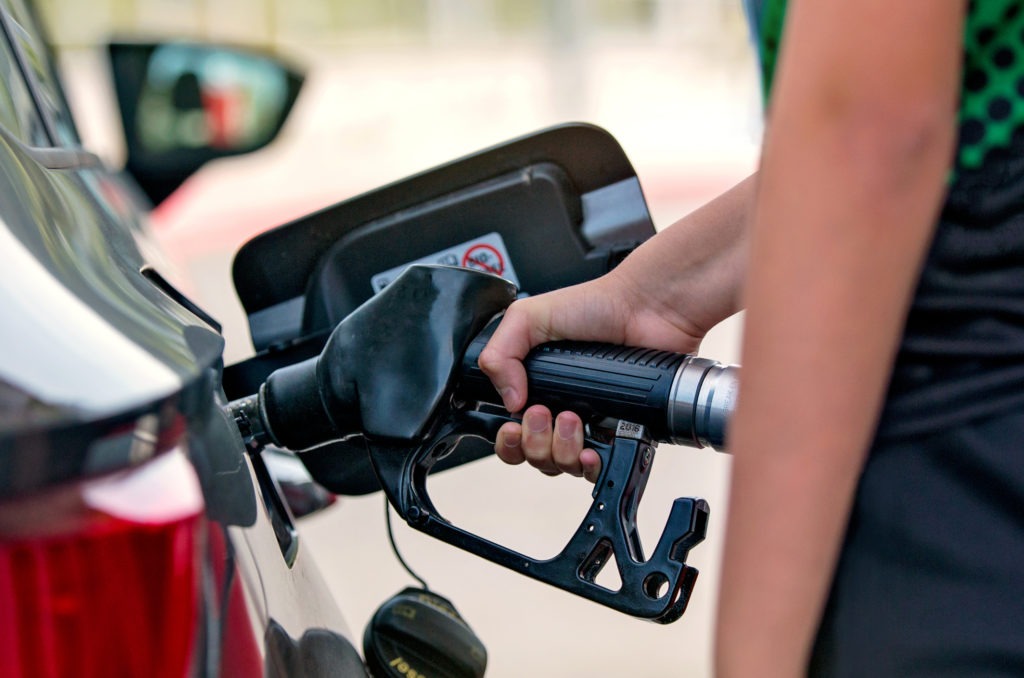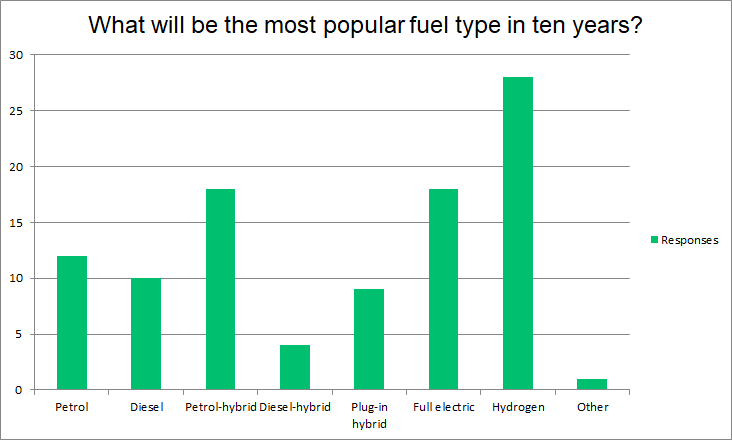The most popular fuel type in ten years’ time
14 December 2018

14 December 2018
With the automotive market split between fuel types as diesel sales plummet and CO2 levels across Europe rise, Autovista Group asked readers of its website and the Daily News Brief what they thought would be the most popular fuel type in ten years.

With 28% of the results, in a surprise first place was hydrogen. Hyundai Group recently announced that it was investing almost €7 billion in the technology, developing systems for a range of transportation markets. Daimler is also investigating the fuel, while Toyota has its Mirai model on the market in Asia, with a select number of vehicles in Europe. A total of 18 multinational corporations, including BMW, Daimler, Audi, Toyota, Honda and Hyundai also formed the Hydrogen Council last year to investigate the potential of the fuel and the infrastructure required.
In second was full electric and petrol-hybrid vehicles with 18% each. The current leaders in the ′alternative fuel’ market, petrol hybrid vehicles came to sales floors over a decade ago, while manufacturers are fast developing electric vehicles to meet strict CO2 criteria being levied on them by the European Parliament. More and more people are turning to hybrid vehicles, the fastest growing market in Europe.
Petrol came in third with 12%, the current market leader thanks to the collapse of the diesel segment, petrol offers drivers everything they currently know – fast fuelling times and a solid infrastructure in place. Vehicle manufacturers are also pushing to clean up the fuel. However, the increase in sales of petrol cars has led to rising CO2 levels in the UK and Europe.
Next, with 10% of the vote, was diesel. Many voters felt that with the rising CO2 levels, it would soon be the case the petrol vehicles would be demonised and that current cleaner diesel engines would therefore prevail. Manufacturers relied heavily on diesel to pass current CO2 targets set for 2021. However, the decline in sales has pushed them toward electric propulsion. Some voters believed that as CO2 becomes more prominent a problem over NOx, petrol demonisation will push drivers back to diesel.
Plug-in hybrids (PHEVs) garnered 9% of the vote, with respondents believing that manufacturers will prefer this technology over full electric cars, offering drivers a compromise between petrol and electric while remaining much cleaner than the internal combustion engine.
Around 4% of voters felt diesel-hybrids would be the most popular. Combining low CO2 and electrification that will help the environment, Daimler is championing this technology. Finally, 1% of respondents felt other fuels would be more popular. Liquid petroleum gas and reverse magnets were just some of the comments.